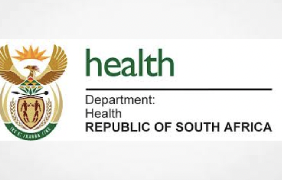Authored By: William F. McDevitt, Esq.
Pennsylvania Temporary Medical Marijuana Regulation § 1141.42 and § 1161.22(b)(1) require entities that received grower/processor or dispensary permits to be operational within six months. The first 12 of 25 grower/processor permits were awarded on June 20, 2017, and the first 27 of 50 dispensary permits were issued nine days later.
On December 19, 2017, Pennsylvania Governor Tom Wolf announced that two more grower/processors, GTI Pennsylvania, LLC and Pennsylvania Medical Solutions, LLC, joined Ilera Healthcare LLC, Terrapin Investment Fund 1, LLC and Standard Farms, LLC, as entities approved to begin operations. The status of the other seven grower/processors is not known as of the posting of this article. Neither the governor’s office nor the Pennsylvania Department of Health (DOH) has announced the approval of any dispensaries to begin operations.
The December 20 and 27, 2017, deadlines loom large for people observing the rollout of Pennsylvania’s Medical Marijuana Program. It is less certain how the permitted entities are reacting to the current deadlines.
Technically, the six-month operational-readiness deadline is for the provision of notice to the DOH. The regulations do not provide a specific penalty for failure to submit an operational notice, but the DOH possesses the general authority to revoke a permit for failure to conform to any regulatory or statutory requirement.
After receiving a notice of operational readiness, the DOH must inspect the facility. There is no deadline for this inspection to take place, but the DOH has stated that it wants the program to be operational by January 1, 2018.
If a facility does not pass inspection, the DOH must notify the permitted entity of all deficiencies; there is no deadline for the DOH to provide this deficiency statement. The permitted entity then has 30 days to submit a “plan of correction,” which must be approved by the DOH; there is no statutory deadline for the DOH’s approval of a plan of correction. The permitted entity must make all corrections within90 days of the DOH’s approval of the entity’s plan.
This assumes that the permitted entity does not elect to appeal the inspection determination. As a Commonwealth agency, the DOH is subject to the Pennsylvania Administrative Procedures Act and Administrative Agency Law. The Medical Marijuana Act expressly adopts this administrative review process. A deficiency decision is appealable to the DOH, and ultimately to the Pennsylvania Commonwealth Court, as provided under administrative law. It is hard to predict how long an administrative appeal or possible court review of the appeal will take.
Moreover, as of this writing the DOH has not issued medical marijuana identification cards or indicated when those cards will be issued. Dispensaries are not permitted to dispense cannabis to a patient/caregiver unless that person possesses a DOH-issued ID card. There are no provisions allowing dispensaries to provide cannabis to caregivers who possess DOH-issued Safe Haven letters. Thus, even if grower/processors and dispensaries meet their current regulatory deadlines, they will not have any customers until identification cards are issued.
About the Author
William F. McDevitt is a partner in the Philadelphia office of national law firm Wilson Elser, where he is a member of the firm’s Cannabis Law practice. He can be reached at william.mcdevitt@wilsonelser.com

















